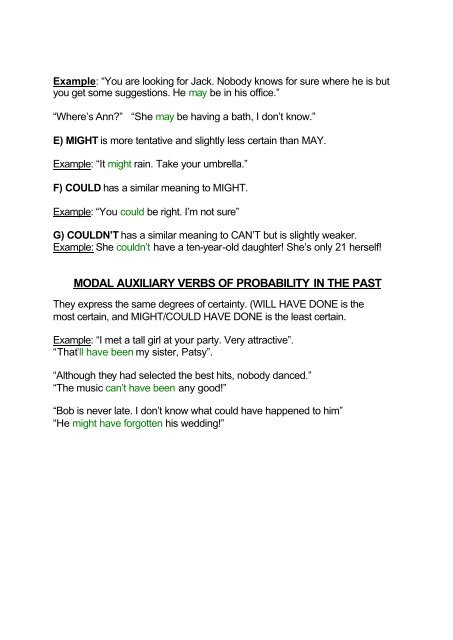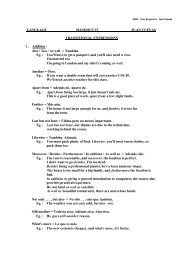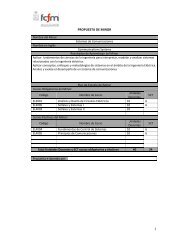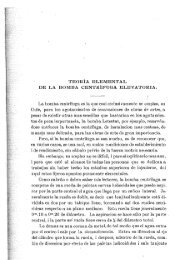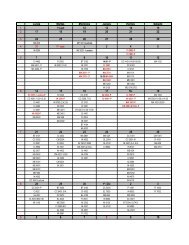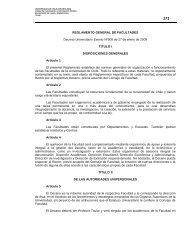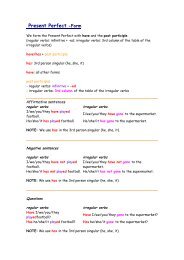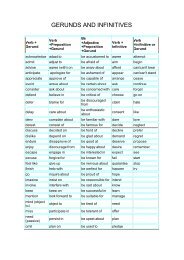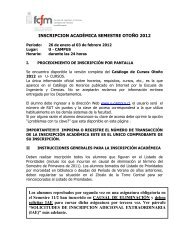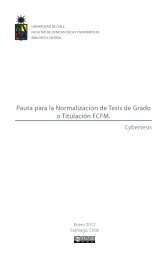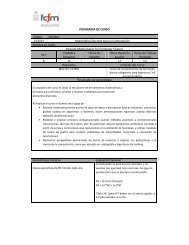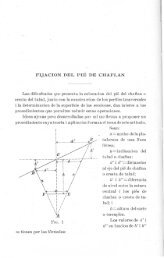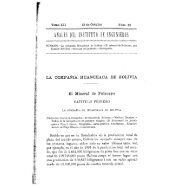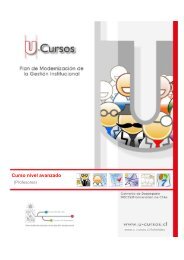modal auxiliary verbs of probability in the past
modal auxiliary verbs of probability in the past
modal auxiliary verbs of probability in the past
- No tags were found...
Create successful ePaper yourself
Turn your PDF publications into a flip-book with our unique Google optimized e-Paper software.
Example: “You are look<strong>in</strong>g for Jack. Nobody knows for sure where he is butyou get some suggestions. He may be <strong>in</strong> his <strong>of</strong>fice.”“Where’s Ann?” “She may be hav<strong>in</strong>g a bath, I don’t know.”E) MIGHT is more tentative and slightly less certa<strong>in</strong> than MAY.Example: “It might ra<strong>in</strong>. Take your umbrella.”F) COULD has a similar mean<strong>in</strong>g to MIGHT.Example: “You could be right. I’m not sure”G) COULDN’T has a similar mean<strong>in</strong>g to CAN’T but is slightly weaker.Example: She couldn’t have a ten-year-old daughter! She’s only 21 herself!MODAL AUXILIARY VERBS OF PROBABILITY IN THE PASTThey express <strong>the</strong> same degrees <strong>of</strong> certa<strong>in</strong>ty. (WILL HAVE DONE is <strong>the</strong>most certa<strong>in</strong>, and MIGHT/COULD HAVE DONE is <strong>the</strong> least certa<strong>in</strong>.Example: “I met a tall girl at your party. Very attractive”.“That’ll have been my sister, Patsy”.“Although <strong>the</strong>y had selected <strong>the</strong> best hits, nobody danced.”“The music can’t have been any good!”“Bob is never late. I don’t know what could have happened to him”“He might have forgotten his wedd<strong>in</strong>g!”


